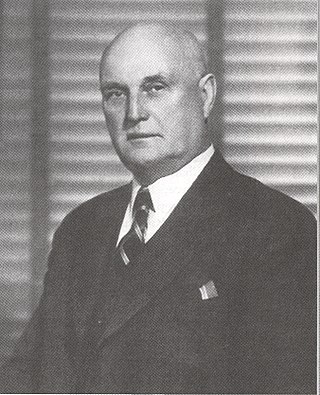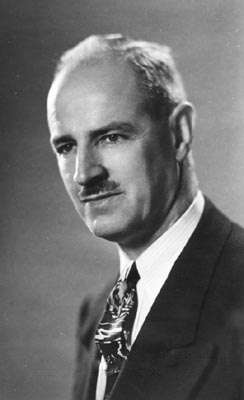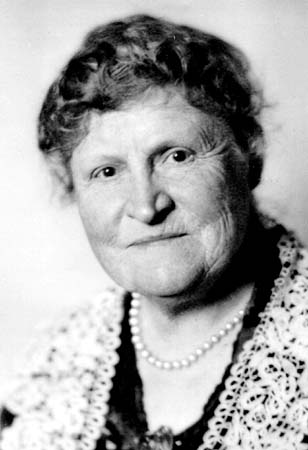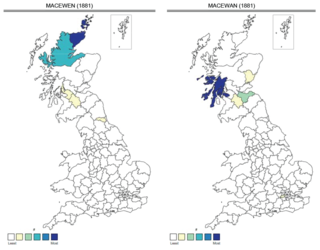
Charles Stewart, was a Canadian politician who served as the third premier of Alberta from 1917 until 1921. Born in Strabane, Ontario, in then Wentworth County, Stewart was a farmer who moved west to Alberta after his farm was destroyed by a storm. There he became active in politics and was elected to the Legislative Assembly of Alberta in the 1909 election. He served as Minister of Public Works and Minister of Municipal Affairs—the first person to hold the latter position in Alberta—in the government of Arthur Sifton. When Sifton left provincial politics in 1917 to join the federal cabinet, Stewart was named his replacement.
The Famous Five, also known as The Valiant Five, and initially as The Alberta Five, were five prominent Canadian suffragists who advocated for women and children: Henrietta Muir Edwards, Nellie McClung, Louise McKinney, Emily Murphy, and Irene Parlby. On August 27, 1927, they petitioned the federal government to refer the issue of the eligibility of women to be senators to the Supreme Court of Canada. This petition was the foundation of the Persons Case, a leading constitutional decision. Although most Canadian women had the vote in federal elections and all provinces but Quebec by 1927, the case was part of a larger drive for political equality. This was the first step towards equality for women in Canada and was the start to the first wave of feminism.

Nellie Letitia McClung was a Canadian author, politician, and social activist, who is regarded as one of Canada's most prominent suffragists. She began her career in writing with the 1908 book Sowing Seeds in Danny, and would eventually publish sixteen books, including two autobiographies. She played a leading role in the women's suffrage movement in Canada, helping to grant women the vote in Alberta and Manitoba in 1916. McClung was elected to the Legislative Assembly of Alberta in 1921, where she served until 1926.

The United Farmers of Alberta (UFA) is an association of Alberta farmers that has served different roles in its 100-year history – as a lobby group, a successful political party, and as a farm-supply retail chain. As a political party, it formed the government of Alberta from 1921 to 1935.

Louise McKinney was a Canadian politician, temperance advocate, and women's rights activist. She was the first woman elected into the Legislative Assembly of Alberta and the first woman to serve in a legislature in the British Empire. She served in the Alberta legislature from 1917 to 1921 as a member of the Non-Partisan League. Later she was one of the Famous Five who campaigned successfully for the right of Canadian women to be appointed to the Senate. A former schoolteacher and temperance organizer, she came to Alberta in 1903 as a homesteader.

John Walter Grant MacEwan was a Canadian farmer, professor at the University of Saskatchewan, Dean of Agriculture at the University of Manitoba, the 28th Mayor of Calgary and both a Member of the Legislative Assembly (MLA) and the ninth Lieutenant Governor of Alberta, Canada. MacEwan University in Edmonton, Alberta, and the MacEwan Student Centre at the University of Calgary as well as the neighbourhoods of MacEwan Glen in Calgary and MacEwan in Edmonton are named after him.

Henrietta Muir Edwards was a Canadian women's rights activist, author and reformer. She was the eldest of "The Famous Five", along with Emily Murphy, Nellie McClung, Louise McKinney and Irene Parlby, who fought to have women recognized as "persons" under the law, and for the woman's right to vote in elections.

Mary Irene Parlby was a Canadian women's farm leader, activist and politician. She served as MLA in the United Farmers of Alberta government from 1921 to 1935, serving as Minister without portfolio in the Cabinet of Alberta during that time. She worked to implement social reforms that helped farm women and children and was an advocate of public health programs. As a member of the Famous Five, she was one of five women who took the Persons Case first to the Supreme Court of Canada, and then to the British Judicial Committee of the Privy Council for the right of women to serve in the Senate of Canada. From 1930 to 1934, she was one of three Canadian representatives at the League of Nations in Geneva, Switzerland.

Lacombe is a city in central Alberta, Canada. It is located approximately 25 kilometres (16 mi) north of Red Deer, the nearest major city, and 125 kilometres (78 mi) south of Edmonton, the nearest metropolitan area. The city is set in the rolling parkland of central Alberta, between the Rocky Mountains foothills to the west and the flatter Alberta prairie to the east.
Jean Paré, CM was a Canadian caterer, author of the Company's Coming cookbook series, and founder of Company's Coming Publishing Limited. She was one of the top-selling cookbook authors in the world, selling 30 million copies as of 2011. She wrote over 200 cookbooks before her retirement in 2011. In 2004, she was made a Member of the Order of Canada (CM), Canada's highest civilian honour.

Alix is a village in central Alberta, Canada that is northeast of Red Deer. Its village mascot is the Alix-Gator, who is featured prominently on many signs and businesses.
The Alberta Eugenics Board was an agency created by the Alberta government in 1928 that attempted to impose sterilization on a disabled subset of its population, in accordance with the principles of eugenics. It remained active until 1972, when it was dissolved.

MacEwan University is a public undergraduate university located in the downtown core of Edmonton, Alberta, Canada.

A wheat pool is a co-operative that markets grain on behalf of its farmer-members.
The following is a bibliography of Alberta history.

The Scottish surname MacEwen derives from the Old Gaelic Mac Eoghainn, meaning 'the son of Eoghann'. The name is found today in both Scotland and Northern Ireland. Because it was widely used before its spelling was standardised, the modern name has several common variations.

The History of women in Canada is the study of the historical experiences of women living in Canada and the laws and legislation affecting Canadian women. In colonial period of Canadian history, Indigenous women's roles were often challenged by Christian missionaries, and their marriages to European fur traders often brought their communities into greater contact with the outside world. Throughout the colonial period, European women were encouraged to immigrate to Canadian colonies and expand the white population. After Confederation in 1867, women's experiences were shaped by federal laws and by legislation passed in Canada's provincial legislatures.
Susan Margaret Rogers Gunn was a Canadian activist. Gunn was the third president of the United Farm Women of Alberta (UFWA), following the presidencies of Irene Parlby (1916-1920) and Marion Sears (1920–24), and served in that role from 1924 to 1929. She was a noted "country life advocate" and detested cities.

The Saskatchewan Grain Growers' Association (SGGA) was a farmer's association that was active in Saskatchewan, Canada in the early 20th century. It was a successor to the Territorial Grain Growers' Association, and was formed in 1906 after Saskatchewan became a province. It provided a voice for farmers in their struggle with grain dealers and the railways, and was influential in obtaining favorable legislation. The association initially resisted calls to create a farmer-owned marketing company. Later it did support formation of the Saskatchewan Co-operative Elevator Company. The SGGA helped the Saskatchewan Wheat Pool, a cooperative marketing organization, to become established in 1924. In 1926 the SGGA merged with the more radical Farmers' Union of Canada, which had earlier split from the SGGA, to create the United Farmers of Canada,

The Grain Growers' Guide was a newspaper published by the Grain Growers' Grain Company (GGGC) in Western Canada for grain farmers between 1908 and 1936. It reflected the views of the grain growers' associations. In its day it had the highest circulation of any farm paper in the region.














